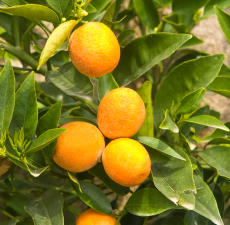|
|
SUPPORT: 1-877-287-4987
Monday to Friday: 10:00am - 05:00pm |
|
EMAIL: [email protected]
Everyday (24/7) |
-
A: Scented Oils
-
B: Scented Oils
-
C: Scented Oils
-
D - G: Scented Oils
-
H - L: Scented Oils
-
M - Q: Scented Oils
-
R - T: Scented Oils
-
U - Z: Scented Oils
Don't see something? Request it.
 Fragrance Family: Citrus/Fruity, Greens
Fragrance Family: Citrus/Fruity, Greens Botanical Name: Citrus bergamia
Extraction Method: Cold Pressed
Origin: Italy
The aroma is basically citrus, yet fruity and sweet with a warm spicy floral quality, and is reminiscent of Neroli and Lavender oil. The Bergamot tree can grow up to four meters high, with star-shaped flowers, and smooth leaves, bearing citrus fruit resembling a cross between an orange and a grapefruit but in a pear-shape. The fruit ripens from green to yellow.
Black Pepper, Clary Sage, Cypress, Frankincense, Geranium, Jasmine, Mandarin, Nutmeg, Orange, Rosemary, Sandalwood, Vetiver, Ylang Ylang, Birch Tar, French Lavender, Oakwood, Pink Pepper, Green Cognac
Bergamot Essential Oil is used in many skin care creams and lotions because of its refreshing nature. It is ideally suited to help calm inflamed skin, and is an ingredient in some creams for eczema and psoriasis. Its chemical makeup has antiseptic properties which help ward off infection and aid recovery. It is also a favourite oil of aromatherapists in treating depression.
Genetically, this citrus is a likely hybrid of Citrus limetta and Citrus aurantium. The name Bergamot is derived from the city Bergamo in Lombardy, where the oil was first sold. The hybrid is native to Calabria, in southern Italy, where 80% is grown and where it was an indigenous treatment for malaria, but it is now cultivated in the South of France, Algeria, and the Ivory Coast for its essential oil, and in Turkey for the production of marmalade.
Bergamot Essential Oil has phototoxic properties and exposure to the sun must be avoided after use. It may also interfere with the action of certain prescription drugs.






